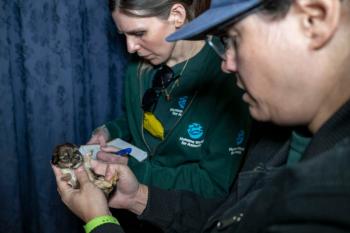
The responsibility of veterinarians to address the costs of care in small animal practice
Veterinarians feel the strain of clients financial limitations, but how do pet owners prepare when theyre not being informed?
Dr. Barry KippermanWhen I was 22 years old applying to veterinary school, compromising or denying services to animals based on economics was the last thing I thought a veterinarian did. Thirty years into my career, our profession has made significant technological advances, but negotiating with clients over the costs of patient care remains unchanged. Collaborating with Philip Kass, BS, DVM, MPVM, MS, PhD, at the University of California, Davis, and Mark Rishniw, BVSc, MS, PhD, DACVIM (small animal, cardiology), of the Veterinary Information Network (VIN), we surveyed 1,122 veterinarians in small animal practice regarding the frequency and degree to which the economic limitations of pet owners influence quality of veterinary care and professional satisfaction.
Pertinent results include:
57 percent of respondents reported that financial limitations affect their ability to provide the quality of care they would like for patients, every day or multiple times per day.
Approximately half of practitioners reported a moderate to substantial level of individual burnout. Clients' financial limitations impact the level of professional burnout from either a moderate extent to being the primary contributor for 77 percent of respondents.
While 88 percent and 91 percent of those surveyed discussed vaccinations and spay/neuter, respectively, with over half of their clients, only 32 percent discussed costs of care prior to patient illness with the majority of their clients, and only 23 percent discussed pet health insurance with the majority of clients.
63 to 95 percent of those surveyed reported a positive influence of improved client awareness of pet health insurance and costs of care on animal welfare, client and professional satisfaction.
Do these findings reflect acquiescence that financial limitations are considered normal within small animal practice, or are economic limitations perceived as the responsibility of the pet owner rather than a consequence of our inaction, fees or hospital policies? One surveyed practitioner responded, “It's hard to plan for the unknown,” referring to the difficulty considering how to prepare a client for future veterinary costs. I contend that pet owners share the same sentiment. They cannot be expected to plan for what they are not being informed of. We have a shared accountability for our clients' lack of preparedness regarding the costs of veterinary care.
If there were an infectious disease afflicting the majority of our patients, there would be clamor within the profession for a vaccine. I suggest we view the issue of economic limitations to care with the same degree of concern we would for a disease endangering animal health. Access to veterinary care and, unfortunately, economic euthanasia, are problems we can no longer afford to ignore. I hope that these findings will motivate the profession to initiate concerted efforts to educate both veterinary students as well as pet owners about the costs of veterinary care to mitigate the dire consequences of this pervasive problem affecting small animal veterinarians, companion animals and pet owners.
Barry Kipperman, DVM, DACVIM, is the founder of Ironhorse Veterinary Emergency and Specialist Care Center in Dublin, California. He teaches veterinary ethics at the University of California, Davis, School of Veterinary Medicine and is on the board of directors of the Humane Society Veterinary Medical Association. His email address is
Newsletter
From exam room tips to practice management insights, get trusted veterinary news delivered straight to your inbox—subscribe to dvm360.






